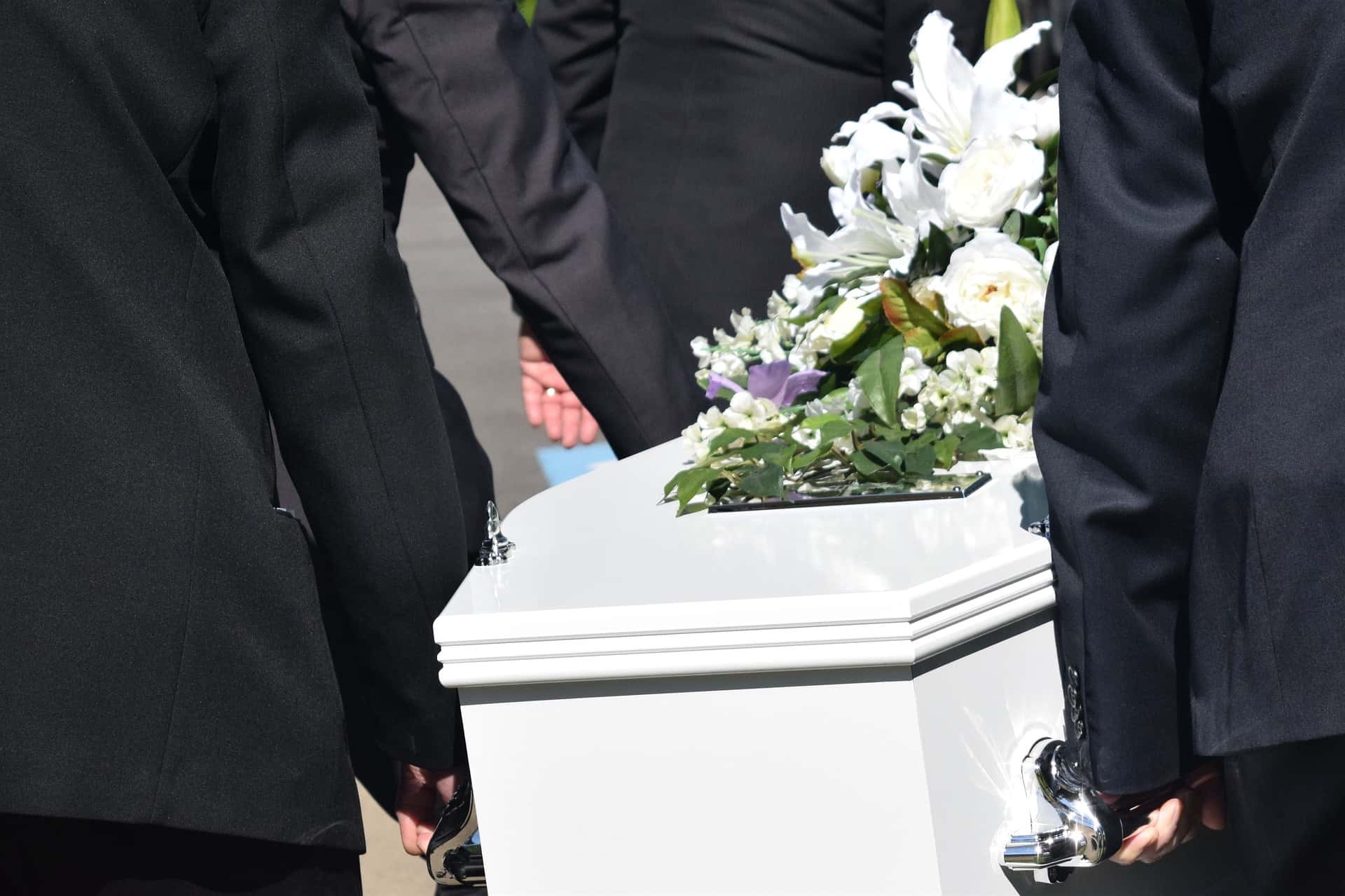Losing a loved one is never easy, no matter the circumstances. When someone passes away in a care home, it can be an emotional and overwhelming experience for family members and friends who are left to handle the aftermath.
It’s important to know what steps need to be taken following a death in a care home, so that you can honour your loved one’s memory and ensure everything is taken care of.
Firstly, it’s essential to inform the care home staff as soon as possible after your loved one has passed away. They will help you with the necessary arrangements, such as contacting the doctor and arranging for the body to be collected by a funeral director.
You may want to consider using a funeral director who specialises in caring for those who have died in care homes, as they will have experience dealing with these situations and can offer support and guidance during this difficult time.
It’s also important to take some time for yourself and your family to grieve before making any final decisions about funeral arrangements.
Informing Care Home Staff
As a care home staff, you are dedicated to providing the best care possible for your residents. However, when one of them passes away, it can be a difficult and emotional time for everyone involved.
Supporting the family during this time is crucial, as they may have many questions and concerns about what comes next. Aside from supporting the family, it is also important to understand the legal responsibilities that come with a resident’s death in a care home.
You should immediately inform the registered manager or senior member of staff, who will then contact the resident’s GP and next of kin. It is important to maintain confidentiality and respect throughout this process, ensuring that all necessary procedures are followed. By doing so, you can help ensure that everything is handled properly and respectfully while supporting those who are grieving.
With this in mind, arranging for the body to be collected is the next step in this process.

Arranging For The Body To Be Collected
Once someone has passed away in a care home, it’s important to arrange for their body to be collected as soon as possible. This can be a daunting task, but there are specific steps you can take to make the process smoother.
First and foremost, you will need to contact the appropriate authorities and inform them of the death. Depending on where you live, this may be the coroner’s office or the local police.
It’s important to understand that there are legal requirements that must be met when someone dies in a care home. The deceased person’s body must be moved in a respectful and dignified manner, and all necessary paperwork must be completed before arrangements can be made for their funeral.
In order to ensure everything is done correctly, it’s best to work with professionals who have experience in handling these situations.
- Contact the appropriate authorities promptly
- Be prepared with all necessary paperwork
- Ensure that the body is treated with respect and dignity at all times
- Make sure that all legal requirements are met before proceeding with arrangements for the funeral
- Consider working with a funeral director to help guide you through the process
Working With A Funeral Director
When someone dies in a care home, it’s important to work with a Funeral Director to make arrangements and ensure everything is taken care of.
Choosing the right Funeral Director can be an overwhelming task, but with the right advice and guidance, you can make sure you get the best service for your loved one.
Arranging Funerals
Arranging a funeral for a loved one who has passed away in a care home can be overwhelming. However, working with a trusted funeral director can help ease the burden during this difficult time.
Funeral directors are experienced in handling all aspects of arranging funerals and can guide you through the process with empathy and professionalism. They can help you choose a cremation option that fits your budget and preferences and provide you with an estimate of funeral costs upfront.
Whether you opt for a simple cremation or a more elaborate service, your funeral director will work closely with you to ensure that your loved one’s final farewell is dignified and respectful.
So, if you’re unsure what steps to take after someone dies in a care home, contact a reputable funeral director today to discuss your options.
Choosing A Funeral Director
When it comes to funeral planning, choosing a funeral director is one of the most important decisions you’ll make.
Not only will they guide you through the entire process with compassion and understanding, but they can also provide cost comparison information to help you make an informed decision.
With so many options available, finding a reputable funeral director may seem daunting, but it doesn’t have to be.
By doing your research and asking for recommendations from family and friends, you can find a funeral director who will work closely with you to ensure that your loved one’s final farewell is fitting and affordable.
Taking Time To Grieve
Losing a loved one is never easy, and grieving is a natural process that takes time. It’s important to remember that everyone grieves differently, and there isn’t a right or wrong way to do it.
Some people may feel overwhelming sadness or anger, while others may experience guilt or even relief. Whatever you’re feeling, know that it’s normal and valid.
If you’re struggling with the loss of someone in a care home, counseling support can be incredibly helpful. Many care homes offer bereavement services or can refer you to local resources. Speaking with a counselor or therapist can provide an outlet for your emotions and help you develop coping strategies for dealing with your grief. Additionally, reaching out to friends and family members for support can be beneficial during this difficult time.
Moving forward, making funeral arrangements is an important step in the grieving process.
Making Funeral Arrangements
When a loved one passes away in a care home, it can be overwhelming to figure out what to do next. Making funeral arrangements is one of the most important steps in the grieving process, as it allows family and friends to honor and celebrate the life of their loved one.
Pre-planning can ease some of the stress during this difficult time, as decisions about the type of funeral service and burial or cremation can be made ahead of time.
Budgeting is an important consideration when making funeral arrangements. It is important to set a budget early on in the planning process so that costs don’t get out of hand.
Funeral services can range from simple and affordable service to elaborate and expensive. By considering options such as direct cremation or green burials, families can pay tribute to their loved ones without breaking the bank.
Funeral directors can also provide guidance on ways to save money while still creating a meaningful service that honors the life of their loved one.
Frequently Asked Questions
What Happens To The Deceased’s Personal Belongings In The Care Home?
Once a resident has passed away in a care home, their personal belongings will be managed through inventory management procedures.
These procedures ensure that the deceased’s items are properly accounted for and dispersed according to their wishes or next of kin’s instructions.
It is important to note that these belongings may hold sentimental value to loved ones, and therefore emotional closure may be necessary before any dispersal takes place.
At Funeral Service, we understand the importance of this process and offer compassionate support to families during this difficult time.
How Can Family Members Request A Copy Of The Death Certificate?
To obtain a copy of the death certificate for a loved one who has passed away in a care home, family members must follow the proper request process.
Care home regulations require that the next of kin or executor of the deceased’s estate make the request for the death certificate.
This can typically be done through the local registrar’s office or online, and there may be a fee to obtain the certificate.
It is important to note that death certificates are legal documents and should be handled with care.
Funeral Service websites in the United Kingdom offer guidance on how best to navigate this process and provide resources to assist those in need.
Who Is Responsible For Notifying Government Agencies, Such As Social Security, About The Death?
Responsibility for notifying government agencies, such as social security, about the death is a crucial task that should not be taken lightly.
It falls upon the immediate family members or next of kin to ensure that this responsibility is fulfilled.
Notification of the death must be made promptly to avoid any delays in processing benefits or payments that may affect the deceased’s estate.
As a Funeral Service website catering to users from the United Kingdom, we understand the gravity of this responsibility and are here to provide support and guidance during these difficult times.
Are There Any Legal Requirements For Disposing Of Medication Left Behind By The Deceased?
When a loved one dies, it is important to dispose of any medication left behind in an ethical manner.
While there are no legal requirements for disposing of medication, it is recommended to return any unused medications to a pharmacy for safe disposal.
It is also important to consider the ethical concerns surrounding the disposal of medication, such as the impact on the environment and potential misuse by others.
As a Funeral Service website targeting users from the United Kingdom, we understand the importance of respectful and responsible handling of all aspects related to end-of-life care.
Can Family Members Hold A Memorial Service Or Visitation At The Care Home Before The Funeral?
Visitation options vary depending on the care home policies. Some care homes allow family members to hold a memorial service or visitation before the funeral, while others do not.
It is important to check with the care home beforehand to determine what options are available.
Funeral Service website provides resources and information on mourning practices in the United Kingdom, including guidance on how to plan a visitation at a care home.
It is also recommended to consult with a funeral director or spiritual advisor for additional support during this difficult time.
Conclusion
When someone passes away in a care home, it can be a difficult and emotional time for family members. It’s important to know what steps need to be taken in order to properly handle the situation.
At the care home, their personal belongings will be collected and kept safe until they can be distributed according to the deceased’s wishes or those of their family. As family members, you have the right to request a copy of the death certificate and should do so as soon as possible.
It is also important to notify government agencies, such as Social Security, about the death. This can help ensure that any benefits or pensions are properly disbursed. Additionally, any medication left behind by the deceased must be disposed of properly, according to legal requirements.
In terms of holding a memorial service or visitation at the care home before the funeral, this may be possible depending on the facility’s policies and availability. It’s best to discuss this with staff members and make arrangements ahead of time.
At Funeral Service UK, we understand how overwhelming this process can be. That’s why we strive to provide helpful information and resources for those who have lost a loved one. Our team is here to offer support and guidance every step of the way. Together, we can create a meaningful tribute for your loved one that honors their memory and brings comfort during this difficult time.


